Why 2020 Has Been A Traumatic Year For Scientists
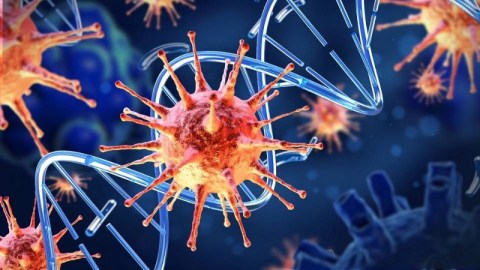
We have been rejecting science for far too long. We all need to embrace it.
For as long as human civilization has existed, those societies that have embraced science have had a distinct advantage over those who’ve rejected it in favor of an ideological worldview. Our distant ancestors underwent an evolutionary split, where some great apes millions of years ago developed stronger jaws, while others developed weaker jaws, enabling their skulls to house larger and more intelligent brains. Although both types were able to survive for a time — both accessing tough-to-crack nuts in different ways, one with stronger jaws and the other through the use of tools — the large-brained apes were able to meet evolutionary challenges that the strong-jawed apes could not. Being more adaptable, our large-brained ancestors survived, thrived, and reproduced, eventually giving rise to our species.
Technological advances, themselves made possible because of scientific advances, have been the hallmarks of successful civilizations. Civilizations that first mastered ironworking had a tremendous advantage over societies still stuck in the bronze age; societies with superior agricultural practices can feed larger populations; technological advances continue to drive military and industrial productivity forwards. And yet, as a global pandemic took the world by storm in 2020, many leaders, nations, and citizens worldwide rejected science in favor of ideologically driven reasoning, leading to an entirely preventable and yet ongoing catastrophe. Here’s why this year has been especially hard on scientists of all varieties.
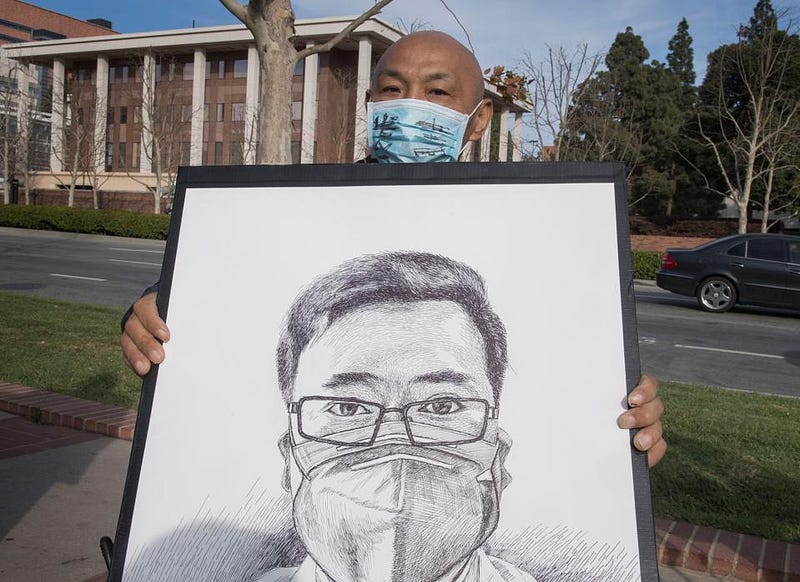
At the very beginning of this year, we started hearing information about a new type of virus — a novel coronavirus — that had begun infecting people in Wuhan province, China. After a December 30, 2019 infection struck a number of patients who began exhibiting symptoms that appeared to be SARS-like, Dr. Li Wenliang of China publicly started sharing information about this new disease. Like many new contagions, this one was airborne and easily spread from person-to-person. On January 10, Li himself became infected after treating a patient with the novel coronavirus, his own infection was confirmed on January 30. Li died on February 7, 2020.
Although it now appears the Chinese government attempted to cover up this virus in the earliest stages, Li was instrumental in sounding the alarm. This was a time of great uncertainty, as we did not know:
- how this virus was spread,
- how lethal it was,
- how significantly it impacted different age groups,
- what sorts of short-term and long-term dangers it posed,
- how long post-infection immunity lasted,
- and what the risks were to people with different risk factors.
And yet, heading into this pandemic, humanity was better prepared to respond from a scientific perspective than ever before.

Expert professionals, from virologists to epidemiologists to disease ecologists to public health specialists, began mobilizing. Travel bans were recommended; quarantines and lockdowns were recommended; plans were put in place to issue masks to every citizen and to enforce new guidelines to stop the spread of this disease. In a worst-case scenario, no mitigation efforts would be taken; the skyrocketing death rates we were seeing in the largest cities that were slowest to respond to the pandemic would become ubiquitous.
As expected, the virus rapidly tore across much of the world. Cases were reported in many countries across Europe, Asia, and the Americas. Initial infection rates spiked, as many countries failed to respond quickly. When the responses did come, they were profound: almost everyone was given a shelter-in-place order, ordered not to leave their house except for essentials. In-person businesses closed temporarily; restaurants went to pick-up only; many recommended wearing masks; we began sanitizing our hands and surfaces; social distancing became ubiquitous.
All over the world, governments paid their citizens and permanent residents to stay home and stay safe. Everywhere, that is, except the United States. People were faced with an unconscionable choice: either go to work unsafely to earn your living, or stay home without adequate resources to do so.
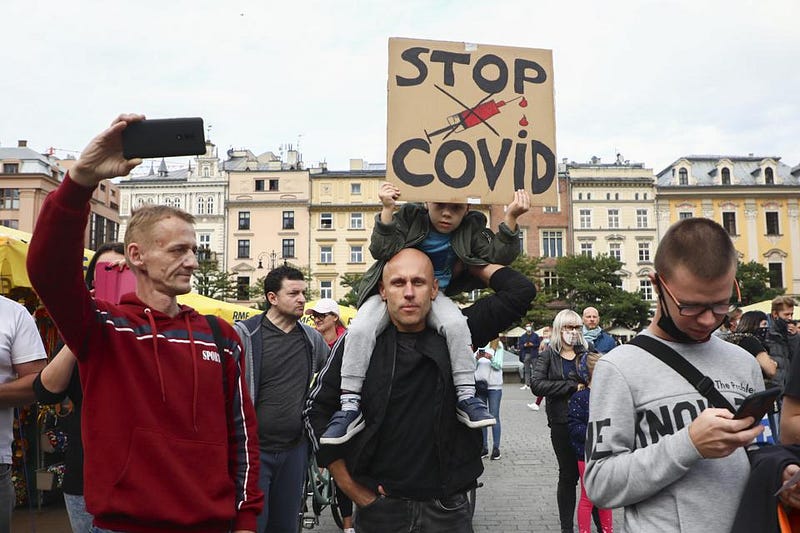
At a time where the people of this world needed the best scientific measures possible to keep us safe — in the United States and beyond — the best recommendations that science had to offer were not heeded. All of the measures we could take were treated as individual choices rather than mandates: a recipe for disaster. Our initial spike of coronavirus cases waned only slowly, never dropping precipitously as they did in numerous countries all over the world. Right when it was most important to slow the spread of the virus by heeding these measures, people began gathering in large numbers, spreading the virus in record numbers.
In the United States, we haven’t had “waves” of infection, where the infection rate rises, then falls, then rises anew, but rather an initial rise followed only by a slow decline that the surges again, driven by people’s behavior. Spurred on by a politically-driven ideology that claimed, at various times, that:
- the virus itself was a hoax,
- the symptoms and infection rate were no worse than the common flu,
- that getting infected was a one-time deal and reinfections were not possible,
- that children were neither harmed by this virus nor were they capable of spreading it,
- and that the entire response was a ploy by one political party to take away our basic freedoms,
approximately half of the country has rejected the very measures that were designed to keep them safe.
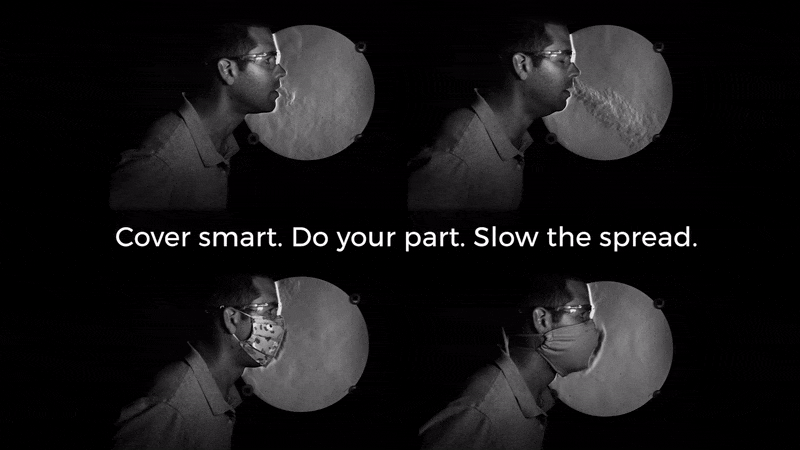
This was the time where we needed science the most. A deadly, invisible, novel disease had come to our backyards, and we were only figuring out what the best response would be. We learned very early on that masks were important, as respiratory droplets and aerosols were the primary means by which the virus spread. Early studies revealed that more distance when you did contact others was good: infection rates declined dramatically with each extra meter (3.3 feet) of space between people. Washing your hands and not gathering with others from outside of your own immediate household was the best protective measure of all.
But that wasn’t what a large fraction of us did. We either convinced ourselves or allowed us to be convinced, without sufficient evidence, that the invisible enemy that is this novel virus wasn’t as bad as the scientific consensus was stating. The same denialist tactics and disinformation campaigns that have been a part of our culture for decades — surrounding issues like tobacco use, environmental pollutants, greenhouse gas emissions, vaccinations, and other vital public health measures — successfully pitted our best scientific results against our ideologies.
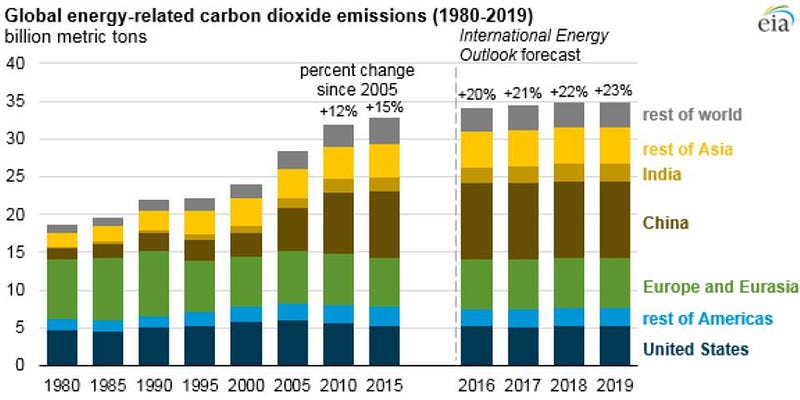
This is the real nightmare of scientists everywhere: that we will be put in a position where our job isn’t to find the best, most scientifically sound solution to the puzzles and problems facing us, but rather to convince each and every person, individually, that following the recommendations of science is the correct course of action for them.
It’s shown us, in no uncertain terms, what practically every scientist has as their worst nightmare: that in a very real way, we are all in the same boat as climate scientists. Despite all the effort we put in to learn how our little area of specialty concerning the world and Universe works, all the time we spent correcting our preconceptions, all the years studying and problem solving and experimenting and comparing theories with data, none of that mattered.
If it conflicted with someone’s gut, someone’s personal beliefs, or someone’s political ideology, nothing you did, said, or knew mattered. You cannot reason someone out of a position they didn’t reason themselves into.
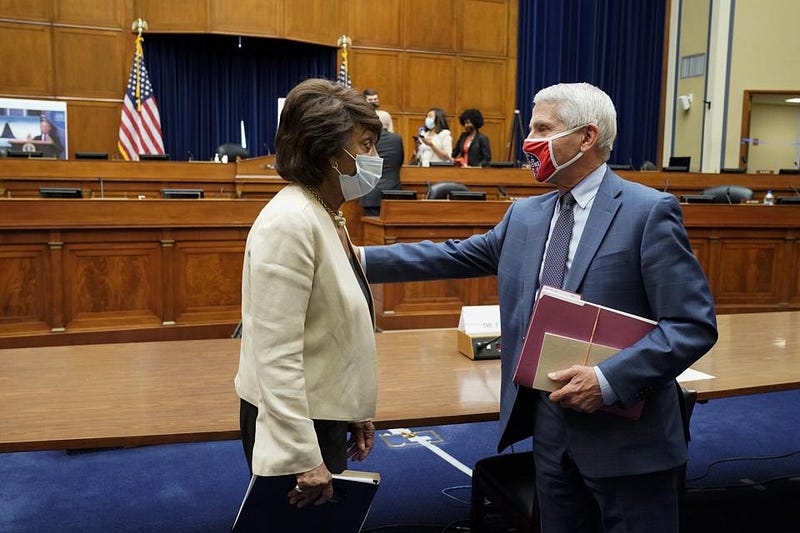
There is a real information epidemic in our country and in our world, with people using whatever facts they can find that support their worldview, rather than forming a worldview informed by facts and well-reasoned conclusions. Instead of deferring to experts — where “experts” means following the conclusions of the overwhelming majority of professional experts actively working in their field — we listen only to the experts who already agree with us. As the legendary philosopher Frank Zappa once put it,
“One of my favorite philosophical tenets is that people will agree with you only if they already agree with you. You do not change people’s minds.”
Adhering to anti-science beliefs should be a non-starter in all instances, but we continue to not only accept and normalize it, but to give those who reject basic scientific facts a prominent platform in our society. As a result, this year has seen serious discussions of the flat Earth, people claiming we didn’t land on the Moon, that black holes don’t exist, and that vaccines, fluoride, and genetically modified organisms are fundamentally unhealthy, unsafe, and unnatural. Meanwhile, our scientific infrastructure is literally collapsing, with the Arecibo telescope — inadequately dealt with for more than 3 years (since Hurricane Maria hit in 2017) — suffering a catastrophic failure.
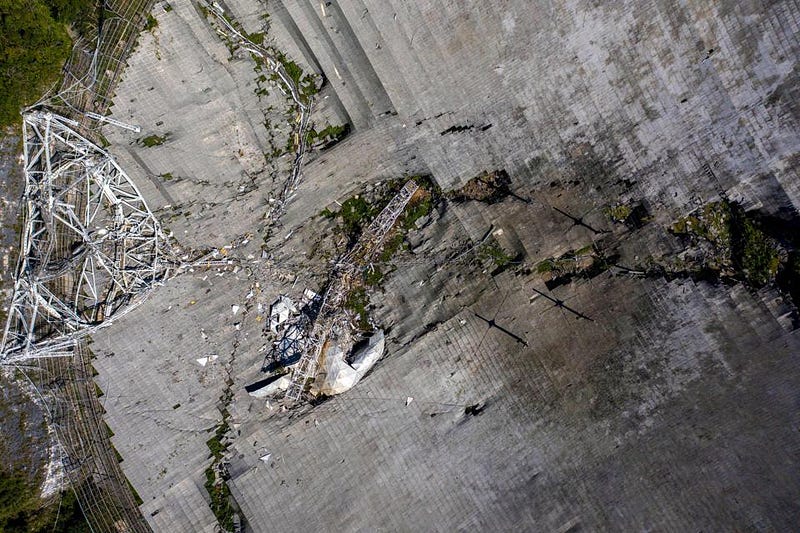
As the year winds down, the rejection of vaccines is the ultimate slap-in-the-face to scientists and medical professionals who have tried their best to persevere through these trying times. Many of us have continued to work on increasing human knowledge and saving lives during this time of tragedy, culminating in the development of a new type of vaccine: one based on mRNA. Instead of injecting someone with a live or dead or weakened virus, they inject them with mRNA, a type of nucleic acid that’s an essential part of life processes.
The mRNA is a little piece of code that tells your cells, “produce this protein,” and it does. The body then produces an immune response — antibodies (B-cells) and a cell-mediated response (T-cells) — preventing infection in nearly 95% of cases and resulting, at least so far, in zero serious/critical/fatal infections. Just as we should all be embracing this incredible boon to public health and learning all we can about this new vaccine, vaccine-rejection by the public appears to be at an all-time high.
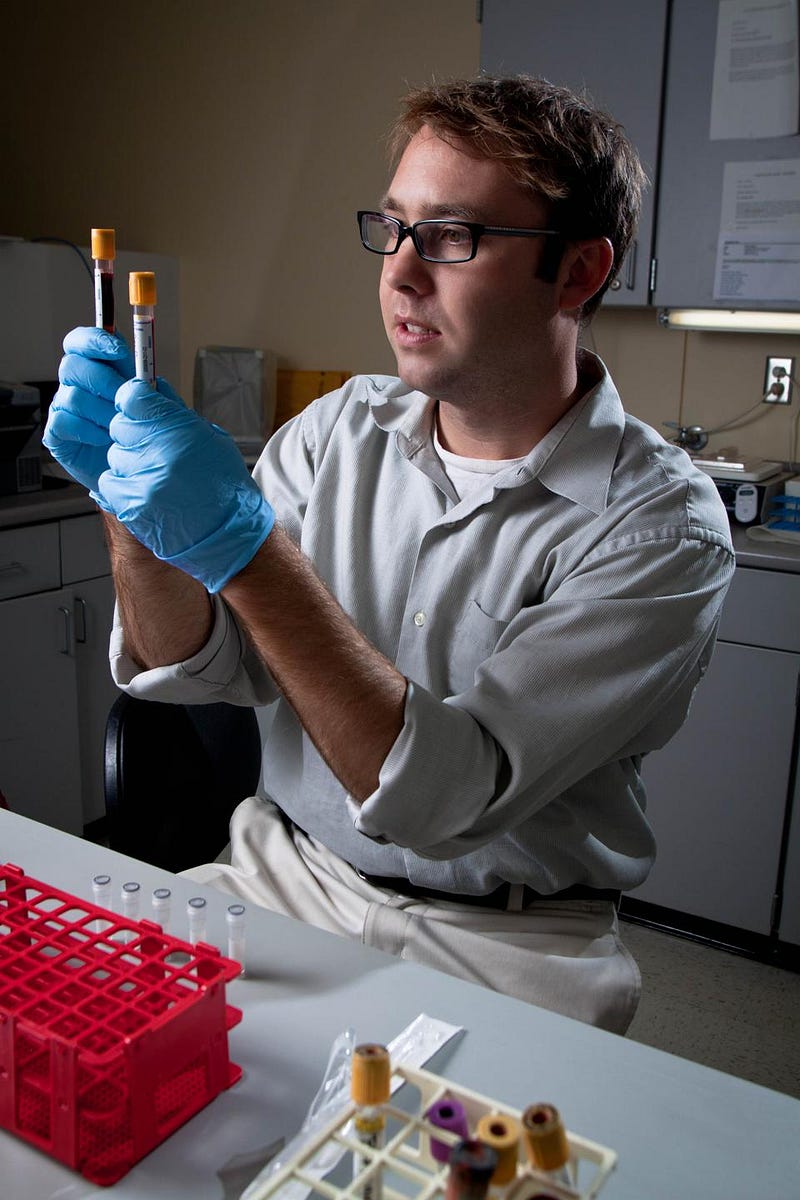
This rejection of science is happening even during a time where the United States is experiencing our deadliest days. Over 17 million Americans have been infected, over 6 million actively have a COVID-19 infection right now, and more than 310,000 people have died. Many have acquired long-term conditions:
- deficits in pulmonary function,
- smell, taste, and other neurological deficits,
- joint inflammation,
- liver damage,
- increased risks of cardiovascular events like strokes and heart attacks,
as well as likely long-term damage that is still being uncovered. Meanwhile, an increasing number of people who contracted the coronavirus and had recovered are now being reinfected.
There is no intellectual way to reach those who refuse scientific information. In all other cases, the only successful intervention has been to make and enforce laws. Indoor smoking bans and mandatory seat belt laws were once controversial issues, and someday we will view adherence to public health policy in the same way. As it stands right now, however, we are actively seeing that millions of people would literally rather die than have to admit to themselves that they were wrong, the scientists were right, and they are the ones who must change their minds and their behavior.
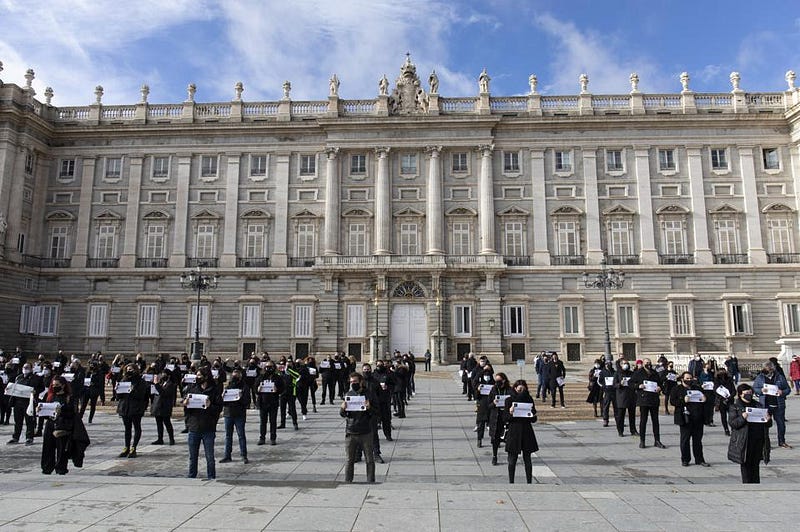
There is no hiding from the fact that we live in a world where people believe they are free to pick-and-choose which scientific facts and conclusions they can accept for themselves. Your expertise — what you know and how you know it — is inconsequential if it conflicts with someone’s personal, religious, or political beliefs. And if you think that your field is safe because you work in the sciences, you haven’t been paying attention.
The death toll and the long-term damage being done by this pandemic and our unscientific response to it is going to be felt for a long time. The knowledge and understanding that many of us have spent our lifetimes gaining and working to further will be treated as absolutely valueless and completely expendable by a large fraction of our society. Until we can create a scientifically literate society, one where the populace is aware of what science is and appreciates the benefits that we gain as a society from listening to it, we will be subject to whatever whims the ideologies-of-the-day favor.
Whether we’re ready for it or not, 2020 is coming to an end and 2021 is almost upon us. There’s so much each and every one of us doesn’t know. Perhaps it’s time to foster a newfound respect for those of us who have cultivated a bona fide expertise that we ourselves lack. The future of our society depends on it.
Starts With A Bang is written by Ethan Siegel, Ph.D., author of Beyond The Galaxy, and Treknology: The Science of Star Trek from Tricorders to Warp Drive.





